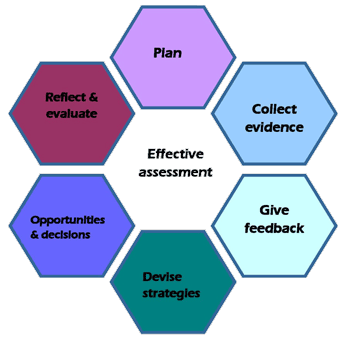Planning for Effective Assessment

-
1
Plan for feedback and assessment
- complete training in assessment
- prepare for assessment by reading information provided by the university and by familiarising yourself with the assessment instrument. If there is to be multiple
- clinical educators decide who has the role as the primary assessor.
- discuss your expectations around assessment with the students in the first few days of the unit as part of their orientation
- discuss with the students how they prefer to be given feedback and how you most commonly provide it and reach agreement. Discuss the importance of immediacy of feedback and how this will be handled, e.g. how is feedback going to be given in front of the patient/client?
- how will you manage your time to ensure each student’s performance can be viewed? - Draw up a feedback / assessment schedule to manage your time effectively
-
2
Collect evidence from multiple sources, for example...
- observation & taking notes to ensure specific behaviours can be recounted when providing feedback to the student
- questioning, in particular, scenario based questioning is very useful to obtain information about a student’s knowledge, understanding and management decisions.
- other colleagues who have also worked with the student,
- structured activities, or simulated activities
- written records - case notes, chart entries, handover notes, letters,
- work related projects e.g. presentations to staff &/or students,
- portfolios
-
3
Give Feedback and devise strategies
- Allow student to self assess, pay particular attention to items where student assessment and educator assessment differ markedly
- Provide student with clear feedback based on samples of evidence
- Use the performance indicators to provide specific feedback of behaviours requiring improvement
- Work with student to devise strategies to assist improvement (learning contract)
- Agree on timeline for signing off on review of student’s performance
-
4
Opportunities and Decisions
- provide opportunities for further practice following formative assessment
- ensure sufficient evidence is collected to enable rating of all 20 items
- make a decision on the final rating of each item
- if you do not have sufficient evidence to make a judgement on the standard of performance, do not grade the item
-
5
Evaluate your teaching and assessing using multiple sources of evidence such as:
- Self-monitoring
- Audio or video recordings
- Feedback from student via questionnaires, interviews
- Peer review – feedback from an outside observer such as a work colleague or university clinical education manager.
(adapted from http://www.icvet.tafensw.edu.au/resources/assessment_strategies.htm)